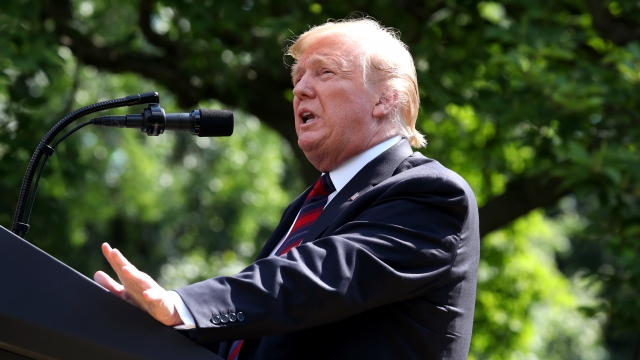The White House put out its proposal for overhauling the country's immigration laws, and it's largely based on creating a merit-based system. President Donald Trump compared U.S. immigration numbers with other countries to argue in support of this change.
"Only 12% of legal immigrants are selected based on skill or based on merit. In countries like Canada, Australia, and New Zealand and others, that number is closer to 60 and even 70 and 75%, in some cases," he said.
So does the president have those immigration numbers right?
Let's start with the U.S. The employment-based visa category covers immigrants who get permanent resident visas based on their skill or education level. The federal government makes about 140,000 of them available every year. Compare that number to the 1.1 million or so visas granted each year, and you get a number around 12% — which is what the president said.
But there are a few caveats to keep in mind when thinking about who falls into that 12%. That number does include some unskilled workers, and it includes the family members of the primary employee. For example, the most recent immigration data from the 2017 fiscal year shows over 137,000 people were granted an employment-based visa, and 58% of them were spouses or children. And it's also worth noting that immigrants approved for a family-based visa could also have skills or acumen that make them a valuable addition to the U.S. workforce.
We have to be a bit flexible in comparing that percentage to other countries since each nation tracks and categorizes their immigration numbers differently. So we'll compare the categories in other countries that are the closest.
Canada has three main categories for immigrant visas: family, refugees and humanitarian, and economic. Skilled workers fall under the economic umbrella, and they represented 56% of the immigrants granted permanent residency in 2017. In Australia, 60% of the permanent visas granted in 2016-2017 were categorized under its "skills stream." And the story is almost the same in New Zealand, where about 60% of immigrants fell into the country's "skilled/business" visa category over a two-year period.
So President Trump was correct to note that some other countries welcome a higher percentage of skilled immigrants. But none of those nations reached the 75% threshold he mentioned.
This story is reported in partnership with PolitiFact and is part of an in-depth analysis show called "What The Fact" that airs Sunday mornings on Newsy.


